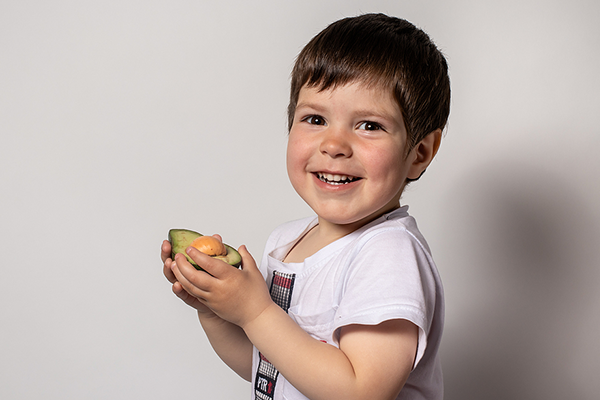Editing your child’s menu to include only the right kinds of fat can help keep their development on track.
Not all fats are bad. Children’s bodies need specific fats known as unsaturated fats, to perform many important functions, including:
- assisting in the absorption of vitamins
- building brain and nerve tissue
- building hormones
- suppling the body with fuel
Good Fats
Choose foods that your kids will enjoy because they are rich in unsaturated fats. These fats are divided into three categories:
- Monounsaturated fats—found in avocados, as well as canola, olive and peanut oils
- Polyunsaturated fats—found in safflower and grapeseed oils
- Omega-3 fatty acids—found in oily fish, such as salmon and tuna
To incorporate these healthy fats into your child’s diet, try:
- Celery sticks topped with peanut butter and raisins
- Guacamole toast cut into a star or heart shape
- Baked salmon puffs
Fats Your Child Should Avoid
To help reduce your child’s risk of developing conditions such as childhood obesity, high cholesterol and Type 2 diabetes, minimize the amount of unhealthy fats, known as saturated and trans fats, from your family’s diet. Saturated fats are usually found in animal products, including butter, cheese, meat and shortening. Trans fats are present in many baked goods, as well as commercial fried foods and snack foods. Trans fats are listed on food label ingredient lists and may also be called partially hydrogenated oils.
How Much Is Too Much?
Kids younger than age 2 should eat plenty of healthy fat from foods without worrying about restrictions. After age 2, about one-third of your child’s diet should come from healthy fat. Eating more than this may result in unwanted weight gain. If your child becomes overweight, he is more likely to be diagnosed with diabetes, heart disease and high blood pressure during adulthood.
Augusta University Health offers a multidisciplinary program known as Paws4Health for childhood obesity. The goal of this program is to educate and empower young patients with the information and tools necessary to manage weight and live healthier lives. The Paws4Health team includes behavioral health specialists, dietitians, nurse practitioners and physicians. Together, these specialists offer guidance related to exercise, nutrition, prevention and well-being.




